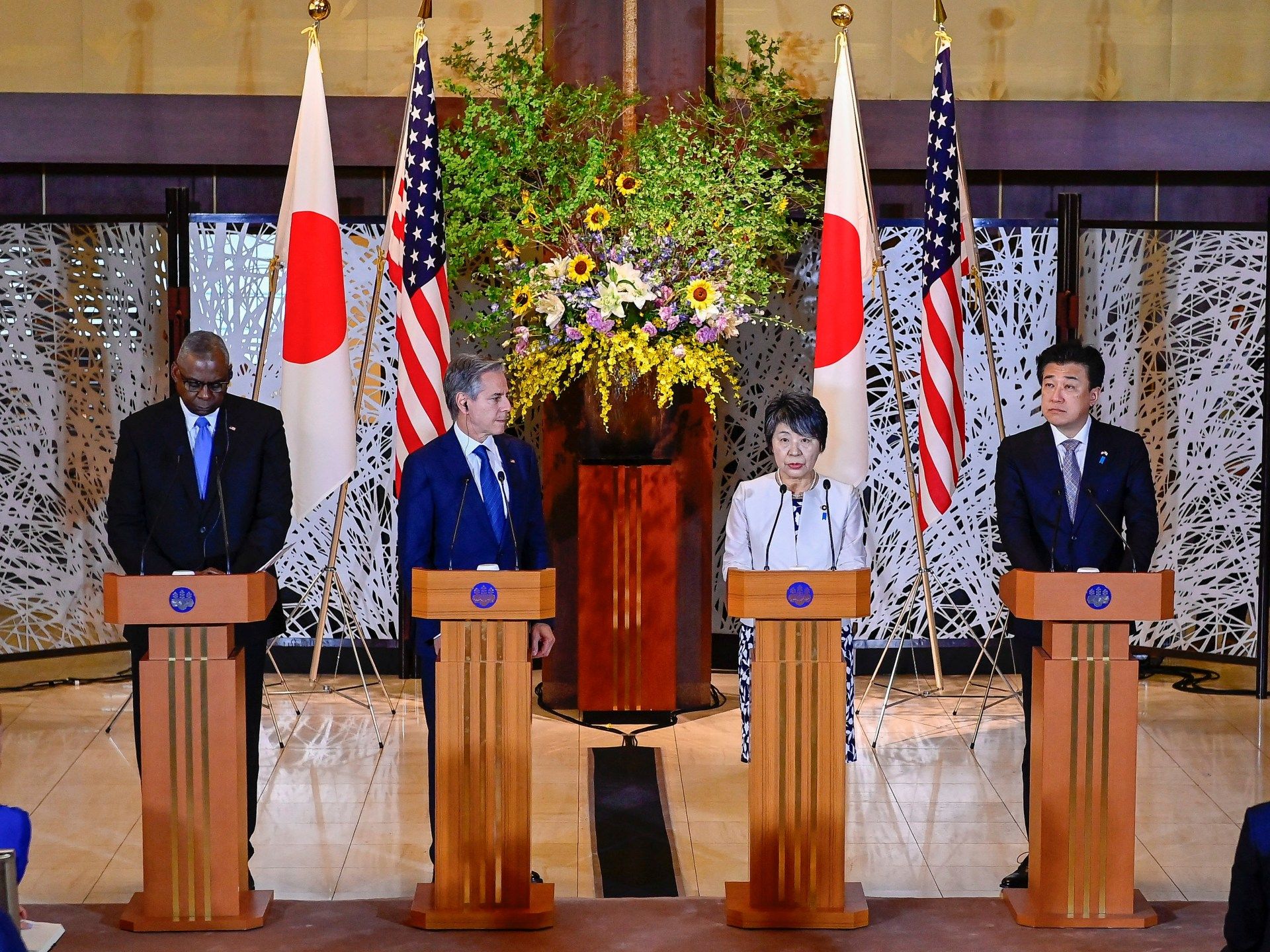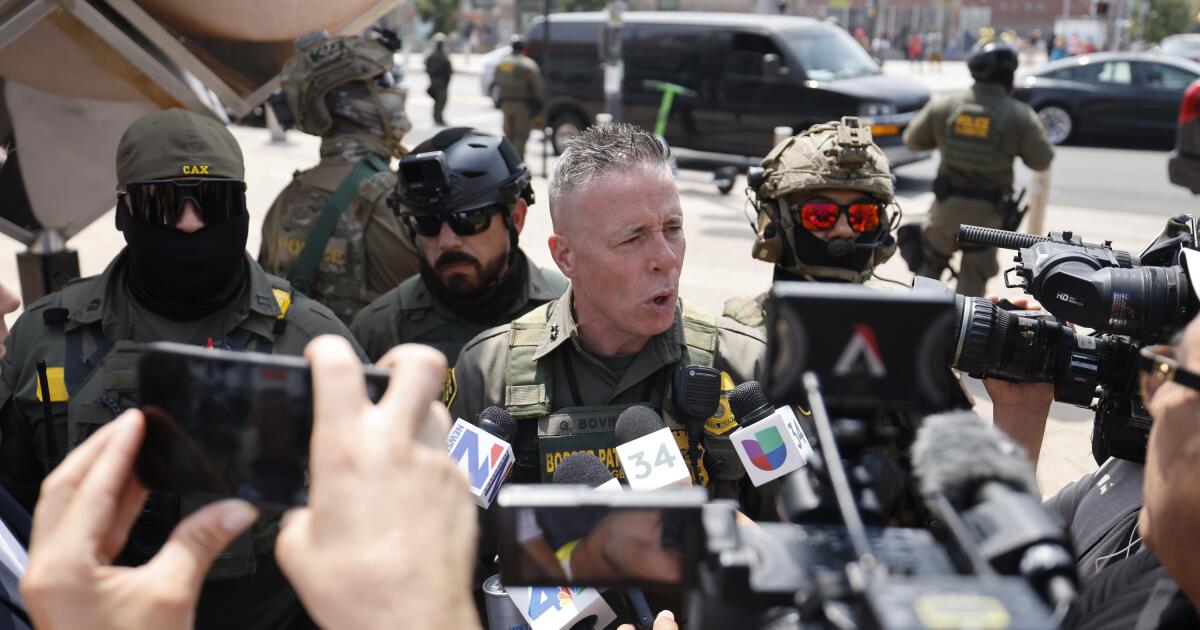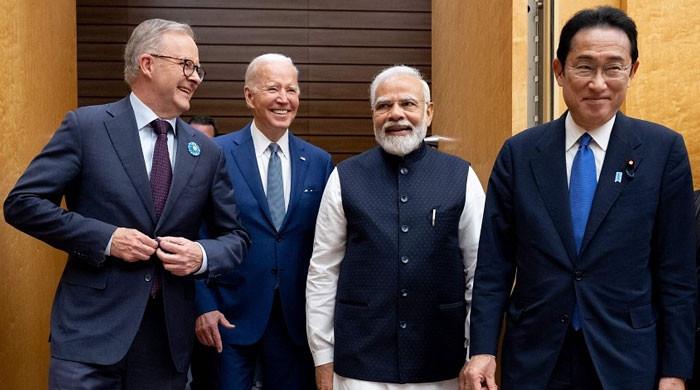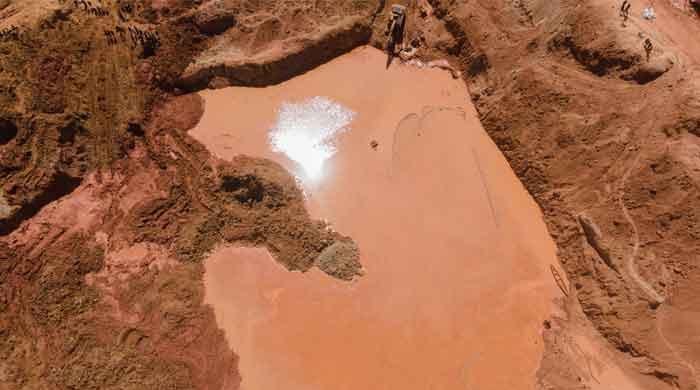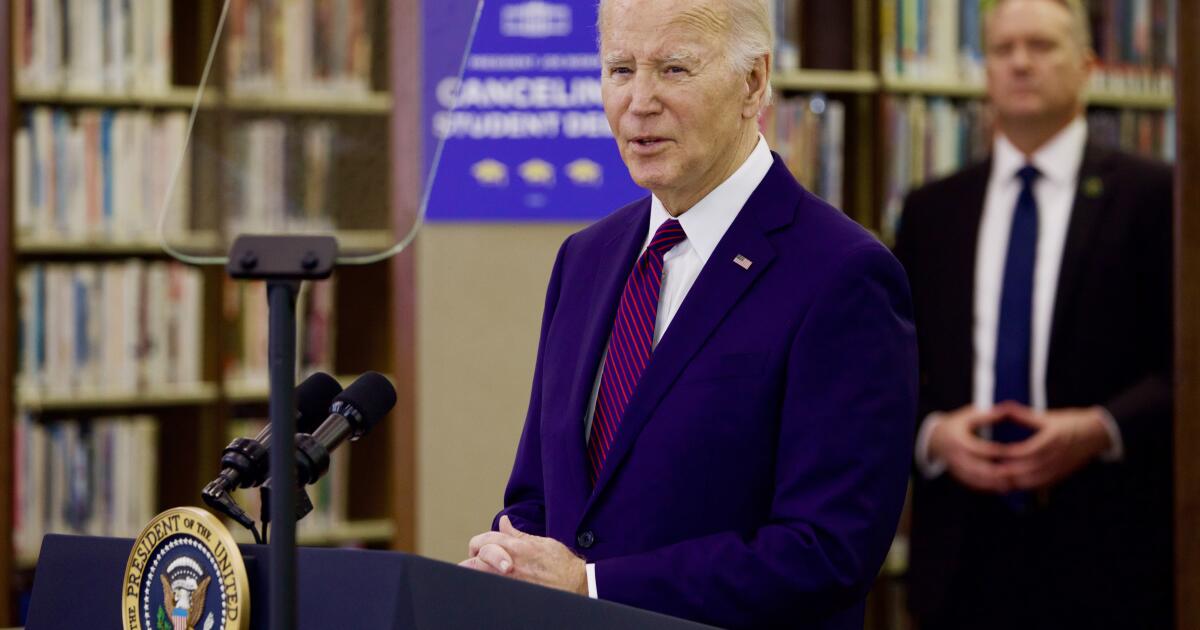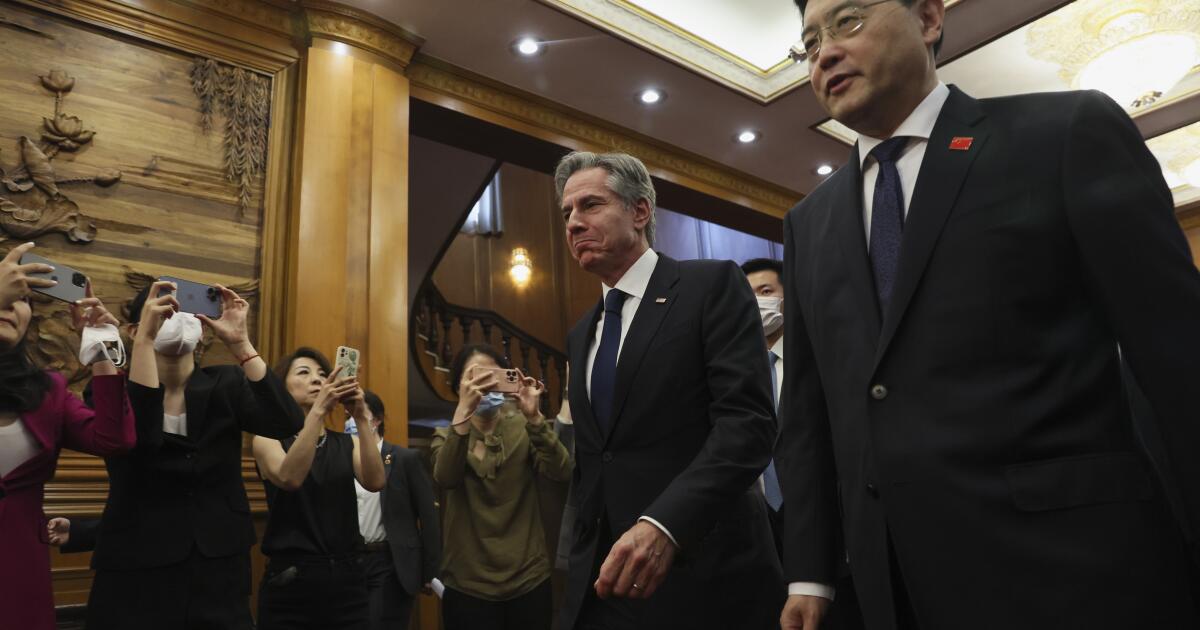The US defense chief says the modernization of the US command in Japan is the most significant progress in their alliance.
The United States has announced plans to reform its military command in Japan to strengthen defence cooperation as the two countries confront what they call the biggest strategic challenge from China.
“The United States will transform U.S. Forces Japan into a joint force headquarters with expanded missions and operational responsibilities,” U.S. Defense Secretary Lloyd Austin told reporters Sunday after so-called “2+2” talks between the two countries’ defense and foreign ministers in Tokyo.
“This will be the most significant change for the U.S. Armed Forces in Japan since its inception and one of the strongest improvements in our military ties with Japan in 70 years.”
The United States has about 54,000 military personnel in Japan, currently reporting to Indo-Pacific Command in Hawaii (INDOPACOM), some 6,500 kilometers away and 19 hours after takeoff. This move will give U.S. Forces Japan greater capability while still reporting to INDOPACOM.
The renewal comes after Russia said it was committed to strengthening military ties with North Korea. Russian President Vladimir Putin visited North Korea last month at a time when Moscow is trying to boost ties with Pyongyang amid a freeze in its ties with the West. Moscow has also strengthened ties with Beijing following its invasion of Ukraine.
Washington and Tokyo say they are concerned about what they call a “changing security environment” as China expands its nuclear arsenal. Both countries said they would increase production of weapons such as air-to-air missile systems.
In the joint statement issued after the talks, the ministers said China’s foreign policy “seeks to reshape the international order for its own benefit at the expense of others” and that “such behavior is a serious concern to the alliance and the entire international community and represents the greatest strategic challenge in the Indo-Pacific region and beyond.”
The statement criticised what it called Beijing's “provocative” maritime actions, joint military exercises with Russia and the rapid expansion of its nuclear weapons arsenal.
Austin, in his opening remarks, said China is “employing coercive behavior, seeking to change the status quo in the East and South China Seas, around Taiwan and throughout the region,” adding that North Korea’s nuclear program and its growing cooperation with Russia “threaten regional and global security.”
However, he told reporters the command upgrade was “not based on any threat from China” but rather reflected the allies' desire to work more closely and more effectively.
'Restructuring the international order'
China's Foreign Ministry did not immediately respond to a request for comment from Reuters news agency.
For the first time, the ministers also discussed “extended deterrence,” a term used to describe the U.S. commitment to using its nuclear forces to deter attacks on allies.
“We are at a critical moment. To thoroughly defend the existing international order, we need to continuously strengthen our alliance and increase deterrence, power,” Japanese Foreign Minister Yoko Kamikawa told reporters at the start of the talks.
Craig Mark, a professor of international relations at Japan's Kyoritsu Women's University, said Japan's concerns are justified.
“From a broad range of perspectives, Japan feels it is facing a more threatened environment, hence today’s meeting and security agreement, which aims to strengthen the U.S.-Japan alliance.”
In recent years, thanks to China’s growing military might and regular missile tests by nuclear-armed North Korea, Japan has made a sharp turn from decades of postwar pacifism. In 2022, it unveiled a plan to double defense spending to 2% of gross domestic product (GDP).
The allies also expressed deep concern about increased cooperation between Russia and China, as well as Moscow's acquisition of ballistic missiles from North Korea to aid its war in Ukraine, as well as the possibility of Moscow transferring weapons of mass destruction or missile-related technology to Pyongyang.

